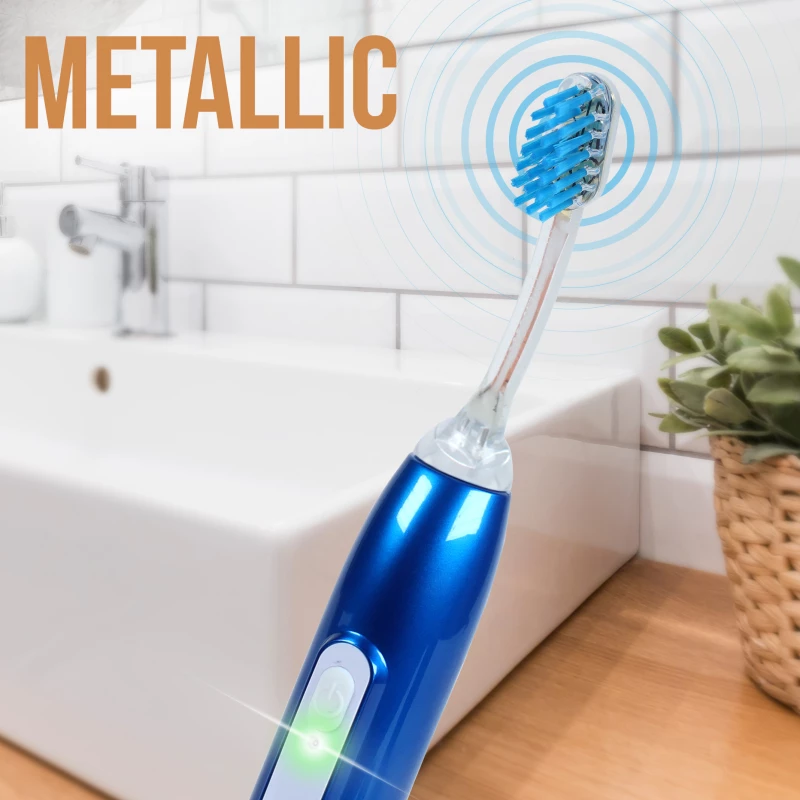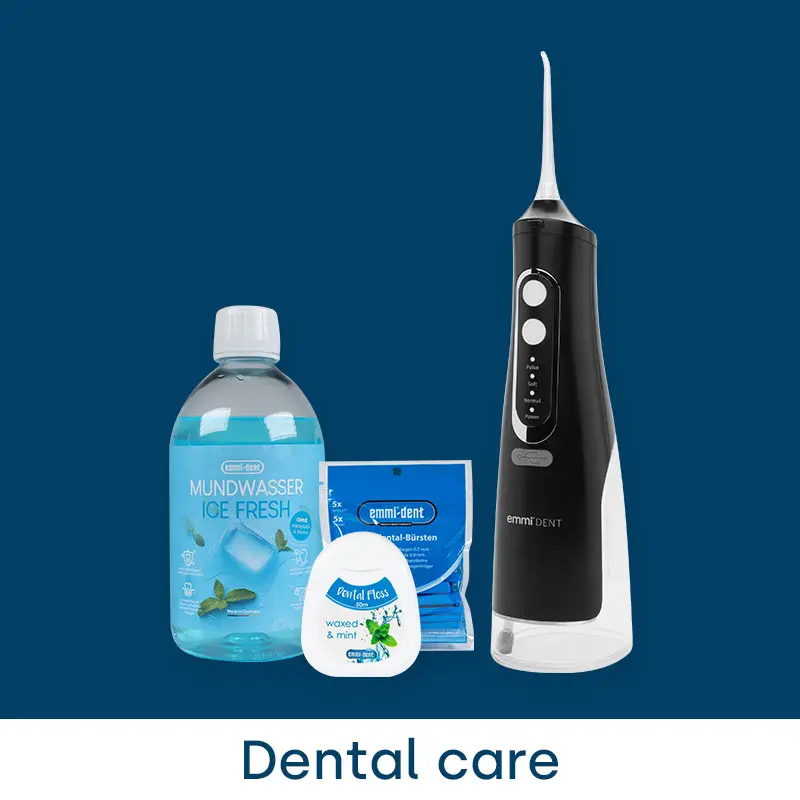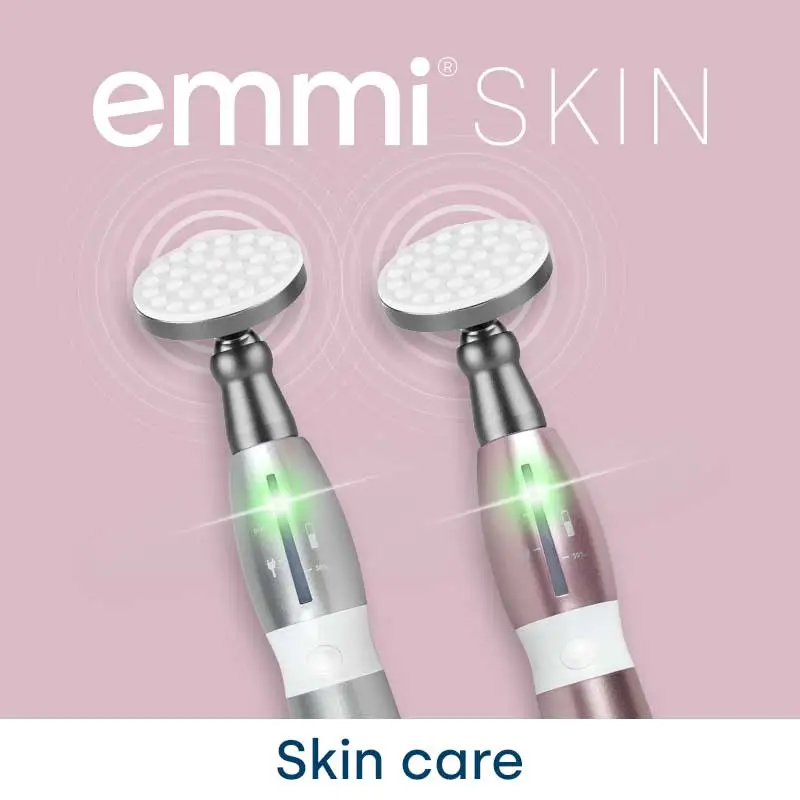
Have you ever thought about how your teeth can affect your sleep? It may sound surprising, but a healthy mouth is the key to a restful night's sleep. Dental problems such as teeth grinding and misaligned jaws can cause sleep disturbances at night and significantly affect your quality of sleep. If you are constantly waking up at night because of jaw pain or clenching your teeth, these could be signs of serious problems. In addition, toxins from inflamed gums can enter our bodies and disrupt our sleep. In this article, you will find out how to recognize these problems and what you can do about them.
The most important facts summarized in advance:
A healthy mouth has a positive influence on sleep, so thorough dental care is necessary to prevent sleep disorders.
Teeth grinding and misaligned jaws could be the cause of sleep problems such as night-time jaw pain and sensitive teeth.
A visit to the dentist helps to identify and treat dental problems at an early stage and can therefore help to improve the quality of sleep.
Relaxation exercises and a healthy diet can improve both oral health and sleep quality.
The effects of oral health on sleep quality are extensive; therefore, good dental hygiene and regular dental visits are essential for restful sleep.
Basics: Oral health and sleep
Are you interested in the connection between oral health and sleep? Then you've come to the right place. Because healthy oral hygiene plays a crucial role in restful sleep. Problems such as night-time teeth grinding or gum inflammation can lead to sleep disorders. Misaligned teeth or ill-fitting dentures can also affect the quality of sleep and oral health.
These problems can be triggered by stress, excessive alcohol or nicotine consumption or even diseases such as Parkinson's. But don't worry, your dentist can often be the first to recognize the consequences and recommend appropriate measures.
But how can you improve your sleep and dental hygiene? Here are some tips:
Regular visits to the dentist help to detect and treat dental problems at an early stage. A bite splint can also prevent teeth grinding at night. Relaxation exercises can help to relax the jaw and reduce stress. Avoiding electronic devices and alcohol before bedtime, a dark, quiet sleeping environment and a fixed sleep routine support restful sleep.
Also pay attention to a healthy diet: heavy meals and sweets before bedtime can rob you of sleep. In addition, a regular daily routine and sufficient exercise also promote quality sleep. In the case of severe tension, physiotherapy can help to loosen up the jaw and neck area.
Good dental hygiene and regular visits to the dentist are crucial for restful sleep, as dental problems can have a significant impact on sleep quality. With our practical tips, you can improve both your oral health and your sleep health.
Specific influences of healthy teeth on sleep
The specific ways in which healthy teeth can affect sleep quality are varied and range from bruxism to jaw misalignment. A common problem is teeth grinding at night, which can cause jaw pain, tooth marks on the cheek and sensitive teeth. Such problems can be prevented or at least reduced by regular dental check-ups and professional treatment of gum disease and tooth decay.
Targeted dental and oral care can also reduce interruptions to sleep at night caused by toothache. Gum inflammation and tooth decay are frequent triggers for such interruptions. Suitable preventive measures, such as regular tooth brushing with our emmi-dent ultrasonic toothbrush and dental floss, can improve oral health and thus increase the quality of sleep.
Reducing night-time teeth grinding through preventative measures, such as wearing a bite splint, can also have a positive impact on the quality of sleep. Teeth grinding, medically known as bruxism, can be triggered by stress and tension and often leads to sleep disorders. A customized bite splint can help to reduce teeth grinding and thus improve the quality of sleep.
In addition, dental problems caused by excessive alcohol and nicotine consumption can affect the quality of sleep. In such cases, a reduction in consumption and professional treatment of dental problems is necessary to improve sleep quality.
As you can see, there is a connection between teeth and sleep. Good oral health contributes significantly to a good quality of sleep. We should therefore pay the necessary attention to our teeth and oral health and not neglect regular dental check-ups and professional dental cleanings.
Practical tips for improving oral and sleep hygiene
To improve sleep quality and oral health, there are several helpful methods that you can integrate into your daily routine. Let's start by optimizing your evening routine. Try to avoid using electronic devices for at least one hour before going to bed. Dark, quiet sleeping environments and fixed sleep routines also support restful sleep.
Dental hygiene practices before bedtime are also important. Regular brushing and flossing will help prevent dental problems that can affect sleep quality.
There are also certain products that promote oral health and support sleep. For example, a bite splint can prevent teeth grinding at night. Dental care products with natural ingredients can also help to keep your mouth healthy without exposing your body to chemicals.
With some lifestyle changes, you can promote both oral health and sleep quality. Avoid excessive alcohol and nicotine consumption, as these can negatively affect oral health and disrupt sleep. Regular exercise and a balanced diet are also beneficial.
In terms of nutrition, there are some foods that promote both teeth and sleep. These include whole grains, fresh fruits and vegetables, and dairy products.
Finally, stress reduction techniques can help reduce teeth grinding and other dental problems caused by stress. Relaxation exercises, yoga or meditation can be effective ways to reduce stress.
Remember, regular visits to the dentist should be an integral part of your oral health routine. Your dentist can identify potential problems at an early stage and recommend suitable measures.
6 aspects that have a direct impact on sleep quality
The link between sleep and dental health is profound and two-way, with many aspects of oral health directly influencing sleep quality and vice versa. Here are some key reasons why these two aspects of health are so closely linked:
1. bruxism (teeth grinding)
Bruxism is a common nocturnal activity that directly affects the quality of sleep. Grinding or clenching your teeth during sleep can lead to headaches, jaw pain and even tooth damage. These symptoms can disrupt sleep and lead to sleep deprivation, which in turn can increase stress and contribute to further teeth grinding.
2. pain and discomfort
Toothache or inflammation in the mouth can be a major disturbance to sleep. Painful conditions such as tooth decay, gingivitis or even broken teeth can make it difficult to fall asleep and cause frequent awakenings during the night.
3. dry mouth
Dry mouth, especially common at night, can be caused by a number of factors, including medication side effects or a natural decrease in saliva production. A dry mouth is more susceptible to bacterial infections, gum disease and tooth decay. These conditions can not only be uncomfortable, but can also affect the quality of sleep.
4. breathing problems
Conditions such as sleep apnea, which are often associated with oral health problems such as enlarged tonsils, misaligned teeth and other abnormalities of the jawbone, can block the airway and disrupt sleep. Adequate treatment of such conditions can not only improve breathing, but also lead to deeper, more restful sleep.
5 Systemic health problems
Chronic inflammation, often as a result of poor oral hygiene, can lead to systemic inflammatory conditions in the body that negatively impact sleep quality. Inflammation can disrupt the production of sleep hormones and lead to restless sleep.
6 Emotional and psychological effects
Poor dental health can also affect self-esteem and mental health. People who feel self-conscious or unwell about their teeth may also suffer from sleep disorders caused by stress, anxiety or depression.
The relationship between sleep and dental health is an excellent example of how different aspects of health are intertwined. A holistic approach that encompasses both dental care and sleep hygiene can make a significant contribution to improving overall well-being and quality of life.











